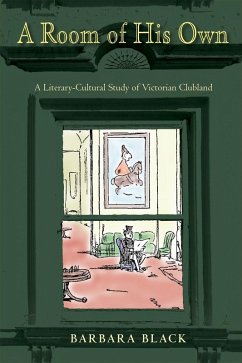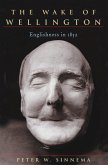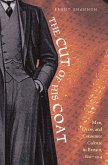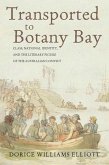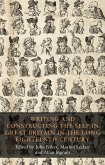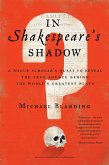In nineteenth-century London, a clubbable man was a fortunate man, indeed. The Reform, the Athenaeum, the Travellers, the Carlton, the United Service are just a few of the gentlemen's clubs that formed the exclusive preserve known as "clubland" in Victorian London-the City of Clubs that arose during the Golden Age of Clubs. Why were these associations for men only such a powerful emergent institution in nineteenth-century London? Distinctly British, how did these single-sex clubs help fashion men, foster a culture of manliness, and assist in the project of nation building? What can elite male affiliative culture tell us about nineteenth-century Britishness?
A Room of His Own sheds light on the mysterious ways of male associational culture as it examines such topics as fraternity, sophistication, nostalgia, social capital, celebrity, gossip, and male professionalism. The story of clubland (and the literature it generated) begins with Britain's military heroes home from the Napoleonic campaign and quickly turns to Dickens's and Thackeray's acrimonious Garrick Club Affair. It takes us to Richard Burton's curious Cannibal Club and Winston Churchill's The Other Club; it goes underground to consider Uranian desire and Oscar Wilde's clubbing and resurfaces to examine the problematics of belonging in Trollope's novels. The trespass of French socialist Flora Tristan, who cross-dressed her way into the clubs of Pall Mall, provides a brief interlude. London's clubland-this all-important room of his own-comes to life as Barbara Black explores the literary representations of clubland and the important social and cultural work that this urban site enacts. Our present-day culture of connectivity owes much to nineteenth-century sociability and Victorian networks; clubland reveals to us our own enduring desire to belong, to construct imagined communities, and to affiliate with like-minded comrades.
A Room of His Own sheds light on the mysterious ways of male associational culture as it examines such topics as fraternity, sophistication, nostalgia, social capital, celebrity, gossip, and male professionalism. The story of clubland (and the literature it generated) begins with Britain's military heroes home from the Napoleonic campaign and quickly turns to Dickens's and Thackeray's acrimonious Garrick Club Affair. It takes us to Richard Burton's curious Cannibal Club and Winston Churchill's The Other Club; it goes underground to consider Uranian desire and Oscar Wilde's clubbing and resurfaces to examine the problematics of belonging in Trollope's novels. The trespass of French socialist Flora Tristan, who cross-dressed her way into the clubs of Pall Mall, provides a brief interlude. London's clubland-this all-important room of his own-comes to life as Barbara Black explores the literary representations of clubland and the important social and cultural work that this urban site enacts. Our present-day culture of connectivity owes much to nineteenth-century sociability and Victorian networks; clubland reveals to us our own enduring desire to belong, to construct imagined communities, and to affiliate with like-minded comrades.
Dieser Download kann aus rechtlichen Gründen nur mit Rechnungsadresse in A, D ausgeliefert werden.

